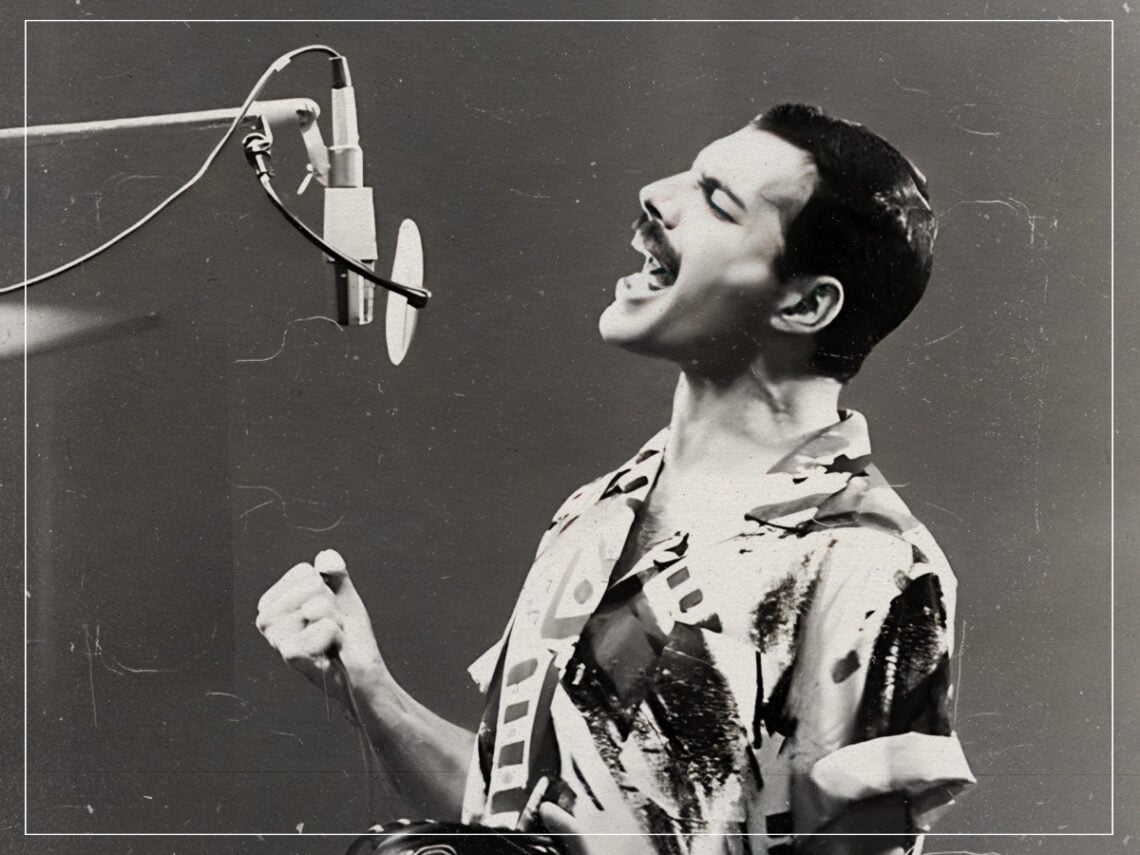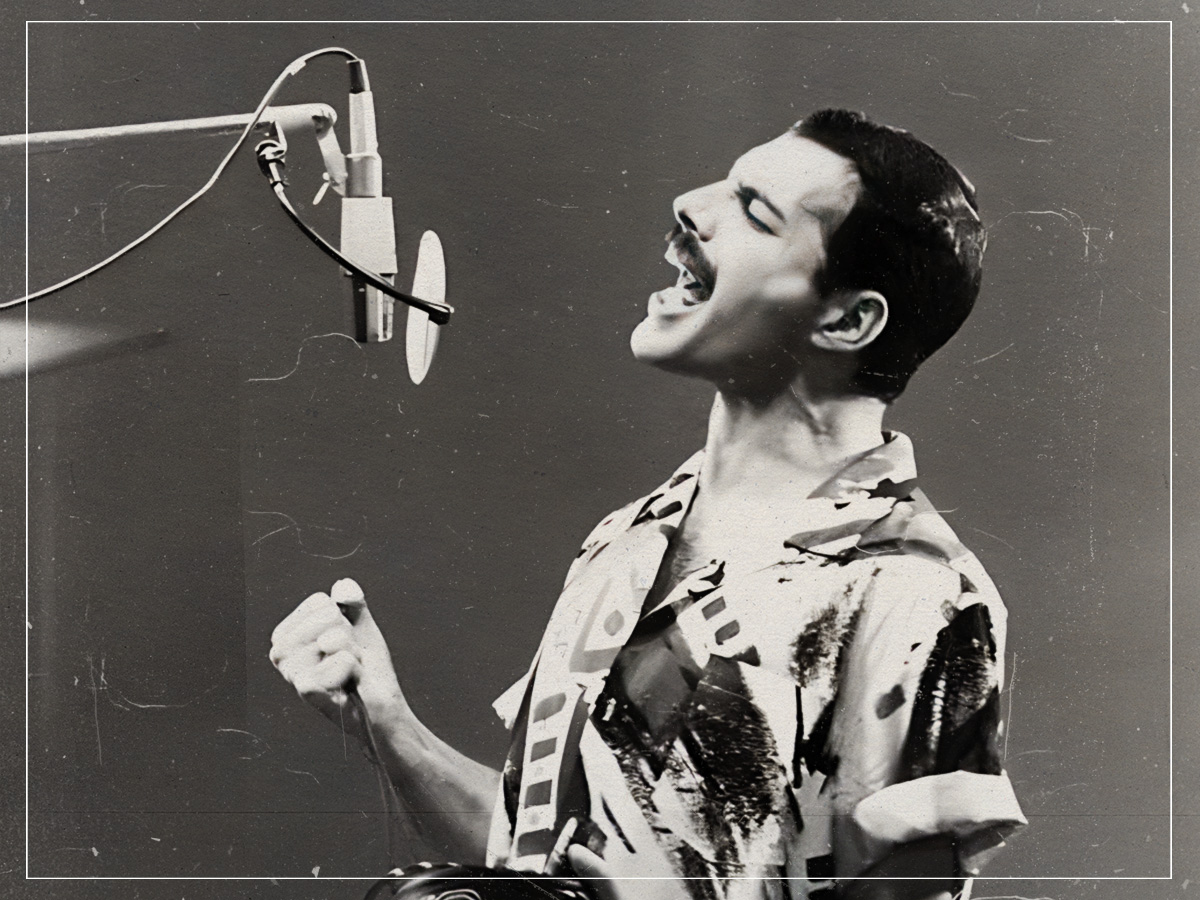
(Credits: Far Out / LastFM)
Wed 22 October 2025 7:00, UK
The immediate image that likely comes to mind when thinking of classic rock icons Queen in their pomp is probably their scene-stealing show at Live Aid.
Frontman Freddie Mercury strutting across the stage with effortless command, donned in white jeans and vest, and orchestrating the improvised “Ay-Oh” exchange with the crowd, stands as a glowing chapter in Queen’s hagiography, serving as the conclusive climax to their 2018 Bohemian Rhapsody biography.
The six-song set, Mercury and guitarist Brian May would take the stage three hours later for a joint rendition of ‘Is This the World We Created…?’, either captures everything grippingly theatrical about the rock survivors or all that’s tediously West End, such is the division they trigger.
It wasn’t a booking event that organiser Bob Geldof was so sure of. Pushed by promoter Harvey Goldsmith, the Boomtown Rats singer hesitantly contacted the Queen team, unsure of their stature in the music world and mindful they’d just finished a punishing world tour. “I think their star had risen and fallen is the truth,” Geldof confessed on CBC’s Q with Tom Power. “I was asked to call them and get them to do it. Frankly, I didn’t care because if you want one word to explain why punk happened: Queen.”
Queen was still big. Dropping The Works the previous year, singles like ‘Radio Ga Ga’ and ‘I Want to Break Free’ all landed canonical hits for the band, but recent shows in South Africa’s Sun City during the album’s tour had caused severe backlash among much of the entertainment industry, pursuing a cultural boycott of the country’s racist Apartheid system. Punk too threatened their cultural primacy. While a few years back, by 1985, the original new wave cohort still saw Queen as something of an anachronistic dinosaur, despite sharing Wembley Stadium billing with the likes of Status Quo.
There were plenty of hits to choose from. 11 albums in by the time of Live Aid, Queen took to the stage around 6:40pm, opening with an excerpt of ‘Bohemian Rhapsody’ before segueing to a sped-up ‘Radio Ga Ga’. After Mercury’s famed crowd back and forth, the quartet briskly fired through ‘Hammer to Fall’, ‘Crazy Little Thing Called Love’, a tightened ‘We Will Rock You’, then rounding off with the chanting ‘We Are The Champions’.
Yet, fans in the audience or watching the BBC’s live coverage may have been surprised by the omission of ‘Another One Bites the Dust’. A massive number from 1980’s The Game, the disco funk groover would have seemed a likely choice for their setlist, reaching number one on the Billboard Hot 100 when dropped. Among a myriad of reasons, from consideration for the select time slot to the lack of interactivity with the crowd, a major factor for ‘Another One Bites the Dust’s shift may well have been the demand on Mercury’s vocals.
Queen’s brief set was arranged to flex the different shades of the Queen sound. This was no less true for Mercury’s frontman duties than May’s guitar attack. Opting for concise performances afforded Mercury the powerful and potent bursts of theatrical bluster and bellowing operetta pop wrung for maximum arrest that the bass-heavy ‘Another One Bites the Dust’ couldn’t promise, a sagging of the band’s tempo, and accelerating vocal fatigue with its rap-like delivery.
Whatever grumbles may have been had among fans were dashed, however. While David Bowie’s rousing ‘”Heroes”’ takes the day’s silver medal, Queen’s brief take of the Live Aid stage ushered in a new era of critical renewal for the band, with consensus often placing their Wembley slot as the greatest performance in rock history.
Related Topics

